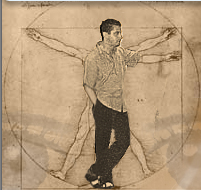| Home > Papers > History |
|


| Sitemap |
| Print view |
| Login |
History
After getting clear on the very idea of a theory of the history of philosophy - the idea of an overarching account of the evolution of philosophical reflection since the inception of written philosophy - I sketch my own proposal for such a global theory of the history of philosophy.
“Franz Brentano: Central Ideas.” Unpublished.
This 24,000-word entry overviews Franz Brentano's theories in all or most core areas of philosophy; written to be understood without any background in philosophy.
“Beatrice Edgell's Myth of the Given.” British Journal for the History of Philosophy, forthcoming.
Argues that the early 20th-century philosopher Beatrice Edgell anticipated Sellars' myth of the given. (Here is a short dialogue explaining the main ideas.)
“Précis of Brentano's Philosophical System.” European Journal of Philosophy 2023.
I try to articulate in 1800 words what Brentano was about and how my book traces his philosophical project.
(With Mark Timmons.) "The Phenomenology of Kantian Respect for Persons." Dean and Sensen (eds.), Respect 2021.
Discussions of Kant's account of respect for persons tend to focus on the distinctive functional role of respect in Kant's writings; we try to bring out of his writings, espectially the Groundwork and the Doctrine of Virtue, a portrait of respect's distinctive phenomenal character.
“Dignaga's Argument for the Awareness Principle: An Analytic Refinement.” Philosophy East & West 2019.
A development of what I take to be the best argument for the thesis that a mental state is conscious only if its subject is aware of it.
“Brentano's Dual-Framing Theory of Consciousness.” Philosophy and Phenomenological Research 2018.
I offer an interpretation of Brentano's theory of consciousness that makes it a particularly subtle version of self-representationalism. The subtlety derives from certain mereological innovations of Brentano's.
“Brentano's Concept of Mind: Underlying Nature, Reference-Fixing, and the Mark of the Mental.” Innovations in the History of Analytical Philosophy 2017.
I offer an interpretation of Brentano's view on the interrelations among mentality, intentionality, and inner perception. According to it, the concept of the mental is a natural kind concept, with intentionality serving as the mental's underlying nature and inner-perceivability as the concept's reference-fixer.
“Brentano's Philosophical Program.” Routledge Handbook of Franz Brentano and the Brentano School 2017.
I argue that Brentano had a philosophical system, which offered a unified account of the true, the good, and the beautiful.
“Brentano's Classification of Mental Phenomena.” Routledge Handbook of Franz Brentano and the Brentano School.
“Brentano's Mereology.” Unpublished.A short expository piece on the topic telegraphed by the title.
“Brentano's Latter-day Monism.” Brentano Studien 2016.A short piece on Brentano's mereology and how it differs from classical mereology. I've integrated it into Chap. 1 of my monograph on Brentano, since it's crucial for a full understanding of many Brentanian moves.
This 2500-word piece discusses a dictation from January 1915 I dug up, where Franz Brentano defends a kind of Schaffer-style priority monism.
“Brentano's Mature Theory of Intentionality.” Journal for the History of Analytical Philosophy 2016.
“Perception and Imagination: A Sartrean Account." Prereflective Consciousness: Early Sartre in the Context of Contemporary Philosophy of Mind 2015.I argue that Brentano's mature theory of intentionality construed intentionality as a non-relational property of subjects, a sort of variant of adverbialism.
“Thought and Thing: Brentano's Reism as Truthmaker Nominalism.” Philosophy and Phenomenological Research 2015.I develop Sartre's case for a categorical, qualitative difference between the phenomenology of perception and the phenomenology of imagination.
“How to Speak of Existence: A Brentanian Approach to (Linguistic and Mental) Ontological Commitment.” Themes from Ontology, Mind, and Logic: Essays in Honor of Peter Simons 2015.What are the truthmakers of "Socrates is wise" and "Socrates is Greek"? According to Brentano, as I interpret him, they are two numerically distinct but collocated concrete particulars, Wise-Socrates and Greek-Socrates. I explain this view and air a defense of it.
“Understanding Conative Phenomenology: Lessons from Ricoeur.” Phenomenology and the Cognitive Sciences 2013.Articulates and defends an unusual approach to existence talk, drawn from Brentano, according to which to say that X exists is to say that the right attitude to take toward X is the attitude of believing in it.
I discuss Ricoeur's intriguing account of the phenomenology of the will, which focuses on deciding rather than desiring as the experientially paradigmatic exercise of the will.
“Phenomenal Intentionality Past and Present: Introductory.” Phenomenology and the Cognitive Sciences 2013.
A non-philosophical short piece about the history of intentionality in the Brentano School, at least as it pertains to the special issue.
(With Angela Coventry.) “Locke on Consciousness.” History of Philosophy Quarterly 2008.
We present and defend an interpretation of Locke as a forerunner not of higher-order perception but self-perception (or same-order perception) theories of consciousness.
